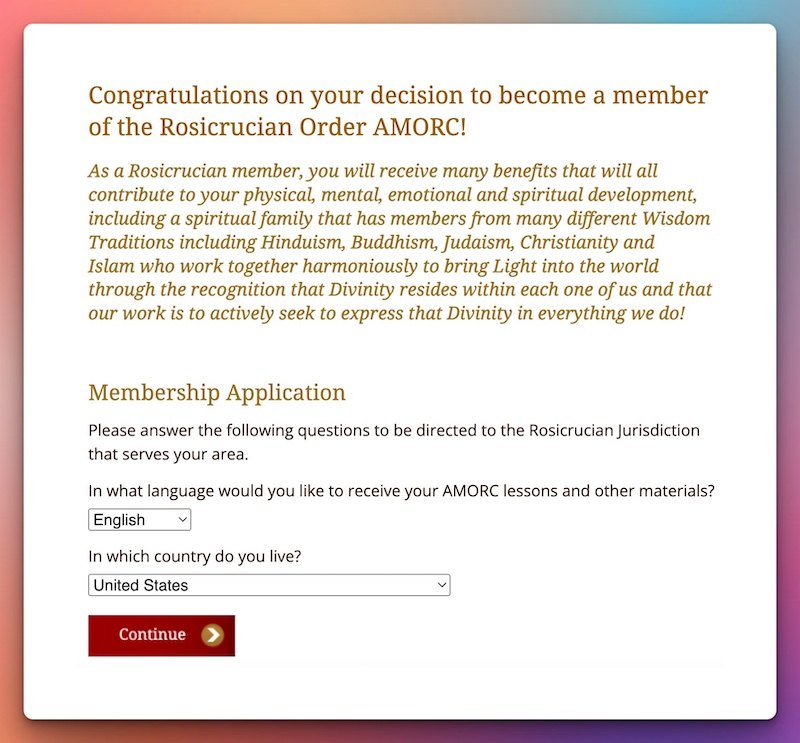When embarking on a journey to join an esoteric or mystical group, you might wonder if prior affiliations are required.
Specifically, if you’re considering joining the Rosicrucian Order, you may ask if being a Freemason is a prerequisite.
The Rosicrucian Order, AMORC, prides itself on welcoming individuals from various spiritual and cultural backgrounds, suggesting that a diverse tapestry of thought is valued within its community.
The Rosicrucian Order and Freemasonry have distinct historical origins and purposes, although they share some philosophical commonalities.
Understanding the requirements for membership in these organizations can help clarify whether a connection exists between them in terms of membership crossover.
It’s important to note that some Rosicrucian groups do have specific criteria for joining, which might be interpreted as ‘obstacles’ signaling that serious knowledge is being shared within.
TLDR/Key Takeaways:
- Membership in the Rosicrucian Order does not necessitate prior involvement with Freemasonry.
- Both the Rosicrucian Order and Freemasonry value a rich diversity of members and are not mutually exclusive.
- Individual Rosicrucian groups may have unique membership criteria separate from Freemason affiliation.

Understanding the Rosicrucians
Exploring the Rosicrucians, you’ll uncover a rich tapestry of mystical heritage coupled with a distinctive philosophical outlook.
Let’s dive into their intriguing history and what defines their practices.
Historical Background of Rosicrucianism
The origins of Rosicrucianism date back to the early 17th century, with the first public manifestation being the publication of several manifestos.
These documents declared the existence of a hitherto unknown esoteric order that had been working for centuries toward the betterment of mankind.
According to Britannica, the name ‘rosicrucian’ is derived from the symbol of the rosa crucis (rose cross), which can also be found on Martin Luther’s family coat of arms.
This historical connection underscores a heritage that weaves together strands of ancient wisdom, alchemical traditions, and Christian mysticism.
Core Philosophies and Practices
The core philosophies and practices of Rosicrucianism are built around the pursuit of esoteric wisdom, personal spiritual development, and understanding the secrets of nature and the universe.
While it intersects with some notions from other mystical traditions, it maintains its unique character through a focus on inner enlightenment and healing.
The Rosicrucian Order, AMORC emphasizes that one does not need to be part of any other organization, such as the Freemasons, to join their ranks, as elucidated on their FAQ page.
This underscores their inclusive nature, centered around the cultivation of spiritual sensitivity and knowledge through structured teachings.
Freemasonry and Rosicrucianism
When exploring mystical and fraternal organizations, you may become curious about the connections and distinctions between Freemasonry and Rosicrucianism.
Specifically, you might wonder if membership in one is contingent upon the other.
Similarities and Differences
Freemasonry and Rosicrucianism share foundations in esoteric lore, with a focus on moral and spiritual enlightenment.
However, their practices and symbols differ, with Freemasonry employing tools of stonemasonry as allegories for personal development, while Rosicrucianism uses more overtly mystical symbols like the rosy cross.
Freemasonry is generally considered a secular organization, whereas Rosicrucianism leans more towards spiritual pursuits.
Membership Requirements for Rosicrucians
Becoming a Rosicrucian does not require you to first be a Freemason.
You are typically expected to have a genuine interest in mysticism and spiritual growth.
The specific requirements may vary among different Rosicrucian orders, but a sincere quest for knowledge and understanding of the universe is a central theme.
Freemasons’ Path to Rosicrucianism
If you’re already a Freemason, you’ll find that the transition to Rosicrucianism is not a direct progression but rather a complementary path.
Although there are historical and symbolic connections, each organization requires independent consideration for membership.
Your experience in Freemasonry might provide a rich background that could enhance your understanding of Rosicrucian teachings.
Frequently Asked Questions

In this section, you’ll find targeted information regarding your interest in the Rosicrucian fraternity, clarifying common curiosities about membership and involvement.
What are the membership requirements for joining the Rosicrucians?
To join the Rosicrucians, you typically need to be at least 18 years of age, have a genuine interest in the organization’s philosophies, and express a desire for personal growth and development. Application procedures vary depending on the specific Rosicrucian order.
Is Freemasonry a prerequisite for becoming a member of Rosicrucian orders?
No, Freemasonry is not a prerequisite for joining Rosicrucian orders. While there are historical connections between the two groups, they are separate entities with different membership requirements.
Are there any specific spiritual or philosophical beliefs required to join the Rosicrucians?
You are expected to have a belief in a higher power or cosmic existence, but the Rosicrucians do not mandate adherence to any specific religious or spiritual dogma. An open mind to exploring mysticism, philosophy, and metaphysics is crucial.
What is the process of becoming a member of the Rosicrucian Brotherhood?
The process involves contacting a local Rosicrucian body and applying for membership. You’ll likely need to undergo a period of inquiry, study introductory material, and agree to uphold the ethical and philosophical standards of the order.
Are there any particular qualifications needed to be accepted into Rosicrucian teachings and practices?
Beyond the basic age requirement and a belief in a higher power, Rosicrucian orders usually expect you to have a clear record of conduct and a commitment to engage with their teachings earnestly and respectfully. No specific educational or professional qualifications are typically required.
